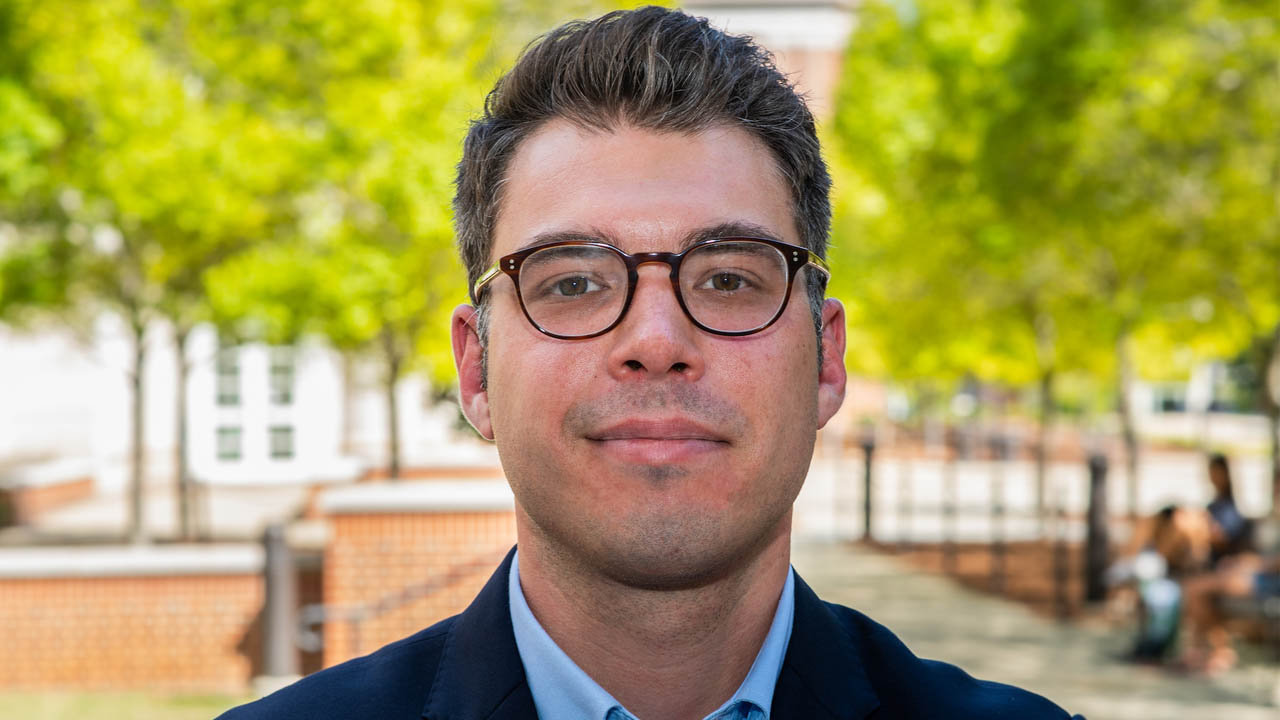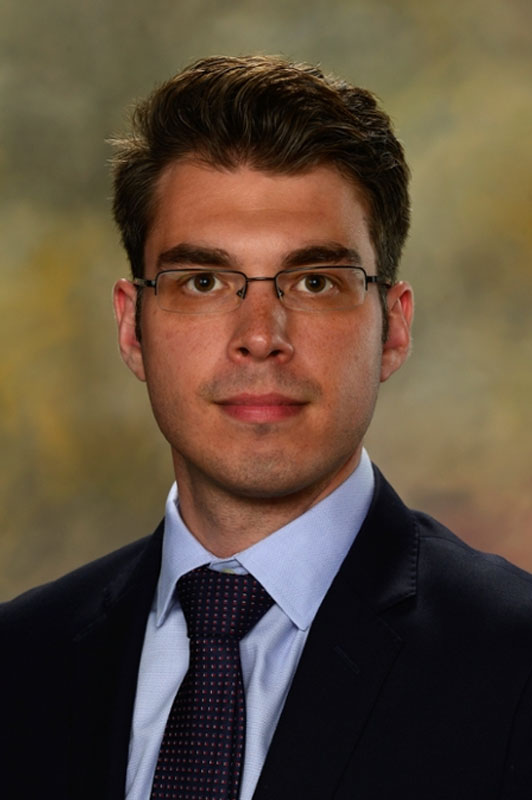Mechanical Engineering researcher awarded major NSF grant
Published: Sep 24, 2019 12:00 AM
By Jeremy Henderson
Nicholas Tsolas, assistant professor in mechanical engineering, was recently awarded a nearly $700,000 grant from the National Science Foundation under the Major Research Instrumentation (MRI) program, to study how non-equilibrium plasmas can be used to address some of the toughest challenges that combustion scientists face today.
“More than 80% of the world’s energy is reliant on the combustion of fossil fuel resources, whether it be for ground and air transportation, to stationary power generation. However, due to the serious implications that combustion imposes on climate change and air pollution, the long-term feasibility of existing systems are in jeopardy,” Tsolas said. “As it stands, the most realistic solution to meeting our future energy demands, while satisfying increasingly stringent emission regulations, is to improve the energy efficiency, fuel consumption and fuel flexibility of next-generation engines. But to achieve these goals, significant technical challenges need to be overcome, and to do so, means that new technologies need to be developed in order to enable and control combustion processes beyond the operational limits of current systems.”
A novel approach known as plasma-assisted combustion (PAC) has attracted significant interest in recent years as a promising technique to enhance combustion, reduce emissions and improve fuel consumption. This could have major implications in realizing the development of high-efficiency, low-emission vehicular engines and gas turbines, and the potential advent of hypersonic propulsion systems. Despite the promise PAC offers, an understanding of the exact chemical-enhancement mechanisms that offer these benefits remains largely unknown.
“The main goal of this project is to design, fabricate and assemble a unique plasma-coupled experimental apparatus that will enable the scientific investigation of PAC at engine-relevant conditions,” Tsolas said. “This new apparatus will be modular in design with the capability of performing a variety of complex diagnostic measurements in order to accurately observe plasma formation, and ultimately interpret auto-ignition chemistry and physical-chemical interactions with and without the influence of a plasma.”
Experimental data derived from Tsolas’ device will be used to develop and validate accurate plasma-specific and low-temperature chemical kinetic models for use in predictive simulation tools, enabling engineers to design future engines and improved combustion systems that incorporate PAC.
The design of this apparatus would not be possible without advantages afforded by additive manufacturing.
“This project not only has scientific relevance, but also practical and industrial relevance,” said Nima Shamsaei, director of the National Center for Additive Manufacturing Excellence (NCAME) and co-principal investigator on the project. “One of the core themes of NCAME is to explore the limits of AM research and development so we can demonstrate to our consortium of partners the potential value AM can offer to fulfill their application needs. In doing so, we are offering state-of-the-art solutions that will have immediate impact on U.S. manufacturing to ultimately accelerate the widespread adoption of AM.”
NCAME has established a public-private partnership with over 80 members, including NASA, Aerojet Rocketdyne, ASTM International and several automotive and aerospace original equipment manufacturers.
Other faculty researchers involved in this project include Mark Hoffman, assistant professor in mechanical engineering; David Scarborough, assistant professor in aerospace engineering, and Edward Thomas Jr., the Charles Barkley Endowed Professor in physics.
This interdisciplinary team seeks to tackle the complexities of PAC in order to translate fundamental science into application. Once operational, it is expected that this apparatus will become a multi-user research tool to facilitate PAC research with collaborators from academia, national laboratories and industry.
“The development of this device will provide a new experimental capability that will offer a substantial impact on the development of the research programs for the respective PIs, but also foster new collaborations with researchers within the U.S. and abroad.” said Dr. Jeffrey Suhling, chair of mechanical engineering. “This award will not only diversify Auburn’s current research portfolio and positions it to take a leading role in energy related research, but through new educational activities, this project will also have an immediate impact on training a new generation of Auburn engineers with the technical skills to needed to develop innovative technologies for future transportation and energy related applications.”
Media Contact: , jeremyhenderson@auburn.edu, 334-844-3591


